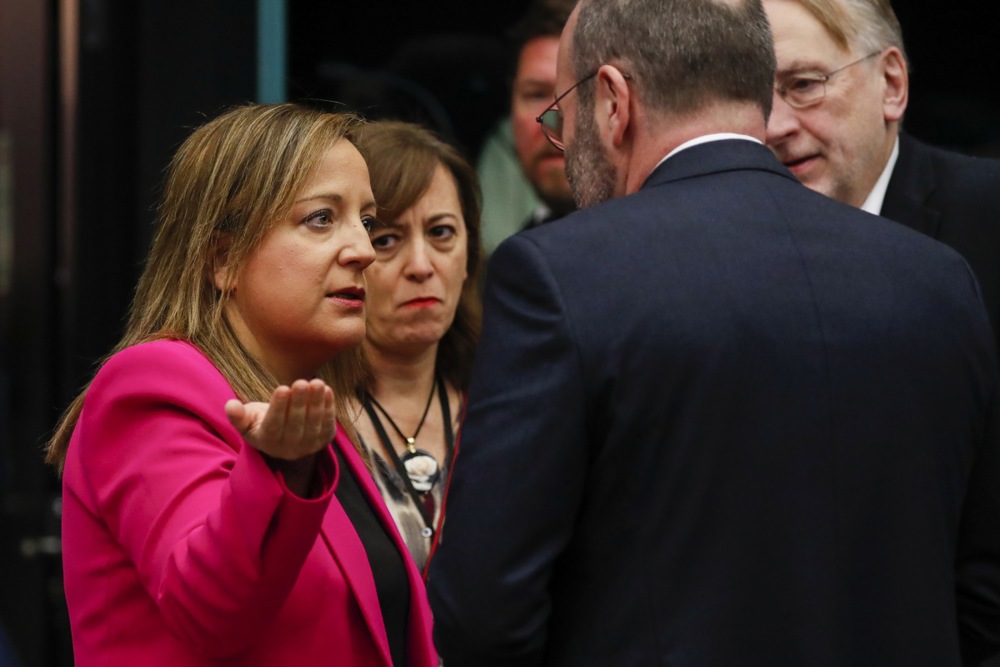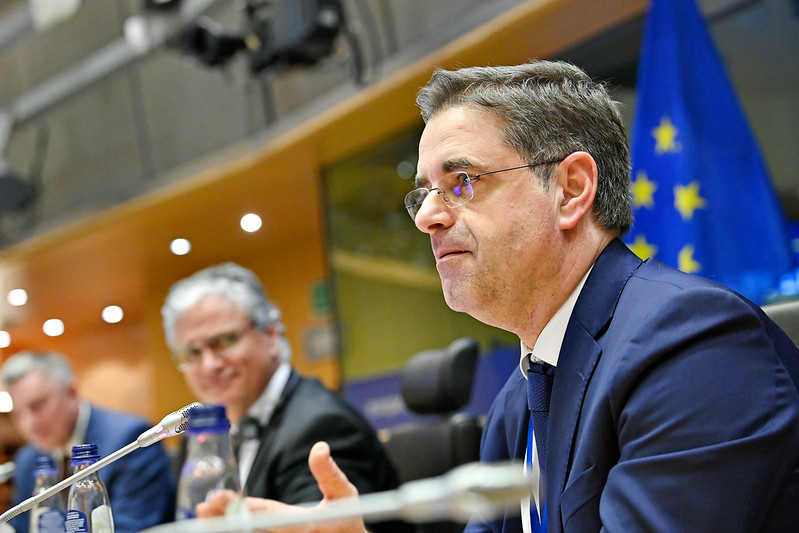The European Parliament has approved a fresh Euro-federalist push via changes to the EU Treaty.
The final vote on November 22 was tight, with 291 MEPs voting in favour, 274 against and 44 abstaining.
Speaking after the vote, veteran MEP and arch-Euro-federalist Guy Verhofstadt said the proposed changes were completely “different in scale” from the previous Nice and Lisbon treaties, which saw dramatic transferrals of power to Brussels.
He said he hoped that the next set of reforms “will finally end this intergovernmental approach of unanimity”.
In key areas, EU laws and policies still need a final stamp of approval from all 27 Member States, meaning each nation has the power of veto. While many regard vetoes as an essential guarantee of the rights of individual nations, others believe they render the EU unmanageable, especially as new members join.
The aim of the five co-rapporteurs – the MEPs leading the Parliament report – is to push their plan through the Council of Ministers and into a European Council summit as soon as possible.
Verhofstadt said that the Spanish Presidency of the Council of Ministers would table the changes for the next General Affairs meeting on December 12. He and the other MEPs hoped it would be speedily approved and sent on to the European Council summit that same week.
If the plan is approved by both the European Council and the Council of Ministers, a convention on reforming the EU will then be called.
‼️BREAKING‼️
Majority of European Parliament votes in favor of Treaty Changes. National vetoes must come to an end!European Council must open an EU-Convention! pic.twitter.com/H7XTYSSGTV
— Daniel Freund (@daniel_freund) November 22, 2023
The pre-vote debate on November 21 was heavily tilted in the federalists’ favour. A strong line-up of MEPs from five of the Parliament’s seven political groups all spoke in favour of change.
They were led by Verhofstodt from the Liberal Renew Group, who urged the near-empty plenary “not to miss this historic opportunity”.
He emphasised that the dangers the EU faced, such as Russia’s invasion of Ukraine and the after-effects of the COVID pandemic, required an “enlarged and enhanced” EU to successfully confront them.
Verhofstodt added that Europe had entered “a world of what I call empires”, referring to the rising power of countries such as India and China.
“We are not ready for this more brutal world we have entered.”
He concluded that unanimity voting and the use of vetoes was a “trap in which the European Union has [been stuck] in for years now”.
Daniel Freund, a co-rapporteur from Greens group, used the example of Hungary’s obstruction of pro-Ukraine and anti-Russian EU policies, claiming that Hungary was throwing “vetoes all around, vetoing everything, you know the game”.
He went on to accuse Hungary’s ruling party Fidesz of “trying to instil Soviet diktats” in the EU.
Referring to the number of hypothetical future members, MEP Domènec Ruiz Devesa asked if it was “possible” for the EU “to survive with 36 vetoes?”
Jacek Saryusz-Wolski, a Polish MEP for the European Conservative and Reformist (ECR) Group, challenged that argument. He said in-depth studies showed that the EU saw a reduction in “obstructionism” when Eastern and Central Europe joined the bloc.
He added that using enlargement to justify treaty change was “the Himalayas of hypocrisy”, saying the only veto the report defended was on new nations joining the EU.
Saryusz-Wolski, who was one of Poland’s chief negotiators for its accession to the EU, was involved in the initial drafting of the Parliament’s treaty change report but resigned earlier this year, claiming virtually all his recommendations had been rejected in bad faith.
"We submitted proposals to increase the role of national parliaments. All of them were outright rejected." @JSaryuszWolski tells Brussels Signal about the EU's dismissal of any proposals to give a larger voice to member states. pic.twitter.com/BuZ5mWO0jl
— Brussels Signal (@brusselssignal) September 21, 2023
Other MEPs cited the Conference on the Future of Europe (COFE) as justification. That was a series of meetings and citizens’ panels held over the COVID lockdown period, in which EU citizens were asked how to reform the EU.
The conference was “a failure”, according to Gerolf Annemans, an MEP for the Flemish Vlaams Belang. Claiming that COFE was effectively pre-arranged to be pro-EU, he called it “yet another comedic episode designed to impose something on the people of Europe”.
The right-wing ECR delegation stormed out of COFE amid similar complaints. Those involved highlighted that, despite claiming to talk directly to the people, fewer than 5 per cent of EU citizens were aware of the conference’s existence.





